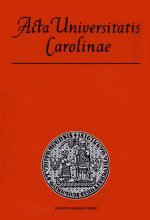Smluvní monopol ohledně dodávek rud, surovin nebo zvláštních štěpných materiálů ve Smlouvě o založení Euratomu
Contractual Monopoly over to Purchase Ores, Source Materials or Special Fissile Materials in the Euratom Treaty
Author(s): Jakub HandrlicaSubject(s): Law, Constitution, Jurisprudence
Published by: Univerzita Karlova v Praze, Nakladatelství Karolinum
Summary/Abstract: The Euratom Supply Agency (ESA) takes a very specific role in the European Law, where the Euratom Treaty (Treaty) is making it into a unique body created by this founding document almost 50 years ago. Art. 52 of the Treaty grants to ESA two rights that the authors of the Treaty saw as constituting its main instruments. These are the right of option and the exclusive right to enter into contracts. These rights are tangential, not mutually exclusive, as a result of which the Agency may exercise both consecutively. Entering into supply contracts means buying, selling, renting, etc. ESA is the only body able to purchase ores, source materials or special fissile materials from outside the Community. Art. 64 of the Treaty establishes that ESA enters into contracts exclusively for importing and may impose conditions only as regards quantity, quality, delivery dates, transport, etc. ESA cannot enter into contracts involving issues of International Law for which it has no competence: for example contracts establishing the possibility of imposing conditions on re-exporting. There exists a secondary legislation adopted under the rules of the Chapter VI. of the Treaty. The most important are the Rules on balancing the demand and supply of nuclear materials. Under the current Rules, a simplified procedure for application of the Treaty rules is established and contracting parties are negotiating their contracts directly between them and submitting these contracts for conclusion by the ESA. Under this procedure, the powers of ESA to conclude the supply contracts can bee seen as an action of validation. Nevertheless, in the case if the contracting parties do not respect the wording of the Treaty and do not submit the contract for the conclusion by ESA, the contract may be declared void by the national court. Special restrictions were established by the so called Corfu Declaration, adopted jointly by the Council and the Commission in 1994. This was primarily for the purpose of preventing the inflow of very low prized material and enriched uranium into the Community (from the countries of the former Soviet Union in particular) in order to maintain the variability of the supply sources. Briefly, Corfu Declaration provides that the market share of European enrichers in the Community may not fall bellow 80 percent. European users may obtain maximum 20 percent of theirs enrichment supplies from ex-Soviet sources. Most currently, the European Parliament (EP) in its Report on the 50 years of the Treaty has expressed its vision on ESA by suggesting that on the basis of the current Treaty rules it becomes a true observatory of the nuclear fuel market. The EP is calling the strengthening the role of ESA in the context of ensuring the energy security of the European Union.
Journal: Acta Universitatis Carolinae Iuridica
- Issue Year: 56/2010
- Issue No: 1
- Page Range: 271-284
- Page Count: 14
- Language: Czech

